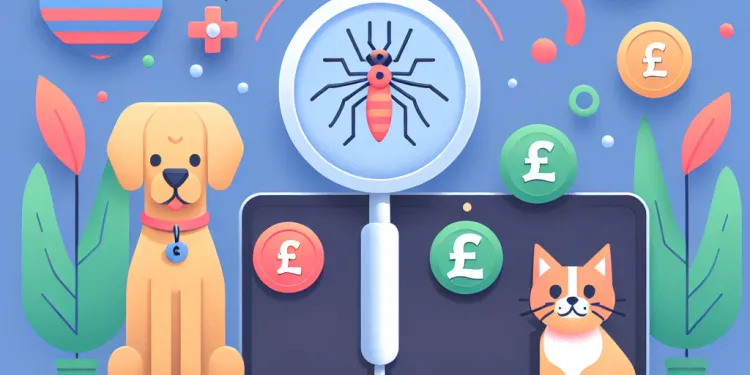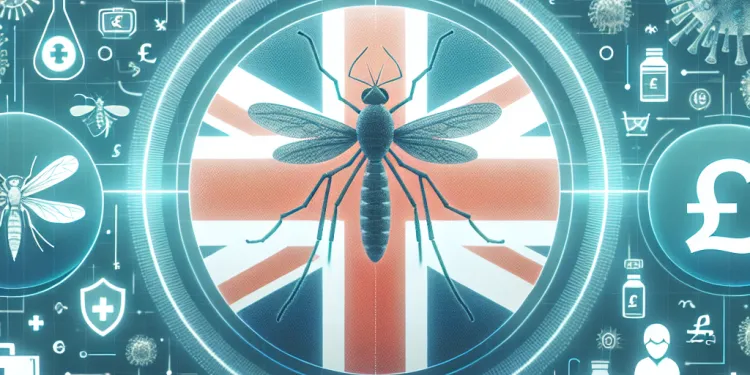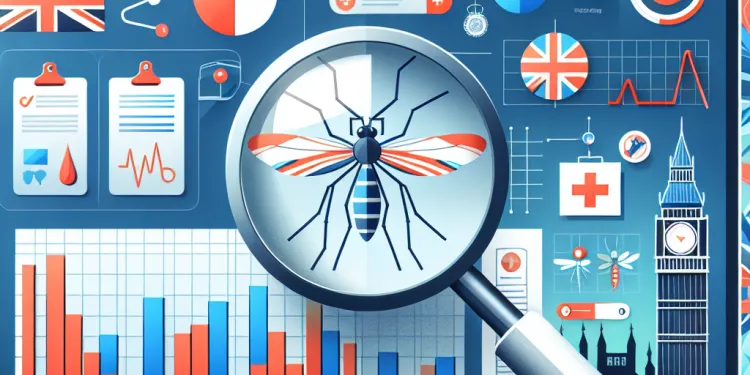
Find Help
More Items From Ergsy search
-

Which animals are known to carry Nipah Virus?
Relevance: 100%
-

Is there a cure for Nipah Virus?
Relevance: 86%
-

What is Nipah Virus?
Relevance: 84%
-

How is Nipah Virus transmitted?
Relevance: 84%
-

Can Nipah Virus cause outbreaks?
Relevance: 82%
-

Where was Nipah Virus first identified?
Relevance: 77%
-

How is Nipah Virus diagnosed?
Relevance: 76%
-

How is Nipah Virus controlled during outbreaks?
Relevance: 75%
-

Can Nipah Virus cause neurological complications?
Relevance: 74%
-

What role do fruit bats play in Nipah Virus transmission?
Relevance: 74%
-

What global organizations are involved in Nipah Virus research?
Relevance: 73%
-

Has a vaccine been developed against Nipah Virus?
Relevance: 73%
-

Why are Nipah Virus outbreaks considered a public health concern?
Relevance: 73%
-

What preventive measures can reduce the risk of Nipah Virus infection?
Relevance: 72%
-

Can Nipah Virus be transmitted from person to person?
Relevance: 72%
-

What should someone do if they suspect Nipah Virus infection?
Relevance: 71%
-

What are the symptoms of Nipah Virus infection?
Relevance: 71%
-

What is the mortality rate of Nipah Virus infection?
Relevance: 71%
-

What regions are most at risk for Nipah Virus outbreaks?
Relevance: 68%
-

Can animals be infected with H3N2?
Relevance: 48%
-

Can animals get Super Flu?
Relevance: 44%
-

How is the Marburg virus transmitted?
Relevance: 39%
-

What is the Ebola virus?
Relevance: 39%
-

Can pets get West Nile Virus?
Relevance: 38%
-

Is the Marburg virus related to the Ebola virus?
Relevance: 37%
-

Can animals spread scabies to humans?
Relevance: 36%
-

What research is being done on the Marburg virus?
Relevance: 36%
-

What is Nipah Virus?
Relevance: 36%
-

Is there a vaccine for West Nile Virus?
Relevance: 35%
-

What is West Nile Virus?
Relevance: 35%
-

How is Chikungunya virus transmitted?
Relevance: 35%
-

How is West Nile Virus transmitted?
Relevance: 35%
-

What is West Nile Virus?
Relevance: 34%
-

How long is the incubation period for the Marburg virus?
Relevance: 33%
-

How is the Zika virus transmitted?
Relevance: 31%
-

Where was the Marburg virus first discovered?
Relevance: 31%
-

How do health officials monitor West Nile Virus?
Relevance: 31%
-

What animals are natural hosts of the Marburg virus?
Relevance: 30%
-

What is the Marburg Virus?
Relevance: 30%
-

Can Marburg virus disease be prevented?
Relevance: 30%
Which Animals are Known to Carry Nipah Virus?
Nipah virus is a zoonotic virus, meaning it can be transmitted from animals to humans. It was first identified in 1999 during an outbreak among pig farmers in Malaysia. Since then, several animal species have been identified as carriers or potential carriers of the Nipah virus. Understanding which animals carry this virus is crucial for preventing and controlling outbreaks, particularly in regions where the virus is endemic.
Fruit Bats (Pteropus Species)
Fruit bats, specifically those belonging to the Pteropus genus, also known as flying foxes, are the natural hosts for the Nipah virus. These bats are widespread across South and Southeast Asia, which coincides with the regions where most Nipah virus outbreaks have occurred. The bats themselves tend to remain asymptomatic, meaning they do not show signs of the disease. They carry the virus in their bodily fluids, such as saliva, urine, and feces, which can contaminate fruits or other surfaces. When humans or other animals come into contact with these contaminated sources, transmission of the virus can occur.
Pigs
Pigs are known to be intermediate hosts for the Nipah virus. The 1999 outbreak in Malaysia was primarily associated with pig farms, where infected pigs exhibited respiratory and neurological symptoms. The virus spreads quickly among pigs and can jump to humans who have close contact with infected animals, particularly farm workers. While the virus causes significant illness in pigs, controlling its spread in these animals is vital for preventing transmission to humans.
Other Animals
While fruit bats and pigs are the principal carriers, other domestic and wild animals have also shown susceptibility to the Nipah virus. Dogs, cats, goats, and horses have been infected during outbreaks, although they are not considered primary transmission sources. These instances typically occur in areas where outbreaks are ongoing, and the animals come into contact with infected bats or pigs. Although less common, these cases highlight the virus's ability to infect a variety of species under certain conditions.
Conclusion
The identification of carriers is essential for monitoring and controlling the spread of Nipah virus. Fruit bats are the primary natural reservoir, with pigs serving as significant intermediate hosts during outbreaks. While other animals can contract the virus, they are generally not primary sources of human infections. Efforts to prevent Nipah virus transmission include educating communities about the risks associated with certain animals, managing livestock effectively, and maintaining good practices in bat management and habitat conservation.
Which Animals Carry Nipah Virus?
The Nipah virus is a germ that can go from animals to humans. It was first found in 1999 in Malaysia, affecting pig farmers. Many animals can carry this virus. Knowing which animals can have the virus helps us stop it from spreading, especially in places where it's more common.
Fruit Bats (Pteropus)
Fruit bats, also called flying foxes, are the main animals that have the Nipah virus. These bats live in South and Southeast Asia, where most Nipah virus outbreaks happen. The bats don’t get sick from the virus. They have the virus in their spit, pee, and poop, which can get on fruits and other things. If people or animals touch these, they can catch the virus.
Pigs
Pigs can also have the Nipah virus. In 1999, in Malaysia, the virus spread in pig farms. Sick pigs had breathing and brain problems. The virus spreads fast among pigs and can pass to humans, especially to people working with pigs. It’s important to stop the virus in pigs so it doesn't reach people.
Other Animals
Besides bats and pigs, other animals can get the Nipah virus, like dogs, cats, goats, and horses. These animals got sick during outbreaks when they were near infected bats or pigs. They are not a main source of the virus for humans. These cases show the virus can affect different animals sometimes.
Conclusion
Knowing which animals have the virus helps us control its spread. Fruit bats carry it naturally, and pigs are important during outbreaks. Other animals can get it too, but they are not the main way it reaches humans. To stop the spread, we teach people about the risks with some animals, manage farm animals well, and take care of bat habitats. Using simple charts or videos can help understand this better.
Frequently Asked Questions
What is the primary animal carrier of the Nipah virus?
Fruit bats, specifically those belonging to the Pteropus genus, are the primary natural reservoir for the Nipah virus.
Can domestic animals carry Nipah virus?
Yes, animals like pigs can become infected and have been known to transmit the virus to humans.
Do horses carry Nipah virus?
While rare, horses have been reported to be infected with Nipah virus in some outbreaks.
Have any wild animals been known to carry Nipah virus?
Besides fruit bats, wild animals have not been commonly identified as carriers or vectors of Nipah virus in significant numbers like bats.
Are dogs known to spread Nipah virus?
There is limited evidence of dogs being infected with Nipah virus, but they are not a main source of human transmission.
What role do pigs play in the Nipah virus transmission cycle?
Pigs can amplify the virus and were significant in spreading the virus to humans during certain outbreaks, especially in Malaysia.
Is it possible for cats to carry the Nipah virus?
Cats can become infected with Nipah virus, but they are not considered a major source of human infection.
How does transmission from bats to other animals occur?
Bats can transmit the Nipah virus through their saliva, urine, and feces, potentially contaminating food sources or surfaces that other animals come into contact with.
Can non-mammalian animals carry Nipah virus?
Currently, there is no evidence that non-mammalian animals carry or spread Nipah virus.
Are rodents significant carriers of Nipah virus?
Rodents are not known to be significant carriers of Nipah virus.
Have any birds been found to carry Nipah virus?
Birds have not been identified as carriers of Nipah virus.
Can Nipah virus be transmitted from human to human?
Yes, human-to-human transmission of Nipah virus can occur, primarily through close contact with the respiratory secretions or other bodily fluids of infected individuals.
Is transmission of Nipah virus possible through food?
Yes, humans can contract Nipah virus by consuming food products, such as raw date palm sap, that have been contaminated by infected bats.
Have any primates been reported to carry Nipah virus?
There is no substantial evidence of primates being natural carriers of Nipah virus.
Can Nipah virus persist in the environment outside a host animal?
Nipah virus does not survive long outside a host in the environment; it requires direct contact for transmission.
Is there a known case of Nipah virus in sheep or goats?
There is limited evidence of Nipah virus infection in sheep or goats during outbreaks.
Do all species of bats carry Nipah virus?
Not all bat species are known to carry Nipah virus; it is primarily associated with fruit bats of the Pteropus genus.
What is the main mode of transmission for Nipah virus from animals to humans?
The main mode is through direct contact with infected animals or their secretions, or indirectly via contaminated food or environmental sources.
Are any aquatic animals carriers of Nipah virus?
There is no evidence of aquatic animals carrying or transmitting Nipah virus.
How can Nipah virus infections be prevented?
Preventing Nipah virus infections involves avoiding contact with bats and sick animals, not consuming raw-date palm sap, practicing good hygiene, and avoiding close contact with infected individuals.
What animal mostly carries the Nipah virus?
Fruit bats carry the Nipah virus. They are a type of flying animal.
Can pets have Nipah virus?
Some animals, like pigs, can carry a virus called Nipah. This can make them sick. It can also make people sick if they get too close.
For pets like dogs and cats, it is very rare to get Nipah virus. But it is still important to keep them safe.
If you want to learn more, you can ask a vet. Vets know a lot about animal health. They can help you keep your pets healthy.
Remember to always wash your hands after playing with animals. This helps stop germs from spreading.
Yes, animals like pigs can get the virus. They can also give the virus to people.
Can horses have the Nipah virus?
Nipah virus is a sickness. People worry about it because it can make us and animals sick.
Horses do not usually carry Nipah virus.
If you have questions, ask a vet (an animal doctor) or a doctor.
To make reading easier, you can use pictures or listen to someone read it to you.
It is not common, but sometimes horses can get sick from the Nipah virus.
Do wild animals have the Nipah virus?
Fruit bats can carry the Nipah virus, but other wild animals usually do not have the virus.
Can dogs give people Nipah virus?
Dogs can catch the Nipah virus, but it doesn't happen very often. They do not usually spread it to people.
How do pigs spread the Nipah virus?
Pigs can make the virus bigger. They were very important in spreading the virus to people during some outbreaks, especially in Malaysia.
Can cats have the Nipah virus?
Cats can get sick with Nipah virus. But, they usually don't spread it to people.
How do bats give diseases to other animals?
Bats can sometimes have diseases. These can make other animals sick.
Bats can give diseases to animals when:
- They leave droppings or pee where animals walk or eat.
- They bite another animal.
- Animals eat food that bats have touched.
If you need help reading, ask an adult or use a reading tool.
Bats can spread Nipah virus. They do this through their spit, pee, and poop. This can make food or places dirty, where other animals might touch.
Can animals that are not mammals have Nipah virus?
Right now, we do not have proof that animals that are not mammals can carry or spread the Nipah virus.
Do rodents carry the Nipah virus?
Rodents are small animals, like mice and rats. They can carry different germs. This question asks if they carry the Nipah virus, which can make people sick.
To understand better, you can:
- Look at simple pictures of rodents and the Nipah virus.
- Ask an adult to explain it to you.
- Watch a video for kids about how germs move between animals and people.
Rats and mice usually don't carry the Nipah virus.
Do birds have Nipah virus?
Birds do not carry the Nipah virus.
Can people pass Nipah virus to each other?
Yes, people can get the Nipah virus from other people. This happens when you are very close to someone who is sick. You can catch it from their coughs, sneezes, or other body fluids.
If reading is hard, you can use tools that read the words out loud to you. Try pointing to words with your finger to help follow along.
Can you get Nipah virus from food?
Nipah virus is a sickness you can catch. You might get it from eating food. Be careful with fruit that bats or animals might have touched.
If you want help, you can use pictures or ask someone to explain.
Yes, people can get sick from the Nipah virus by eating foods, like raw date palm sap, that have germs from sick bats.
Do any monkeys or apes have Nipah virus?
Monkeys and apes do not naturally carry Nipah virus.
Can Nipah virus stay alive in the world outside an animal?
The Nipah virus does not live long outside the body. It spreads when you touch someone or something with the virus on it.
Can sheep or goats get the Nipah virus?
No, we do not know of any cases where sheep or goats have the Nipah virus.
This virus is mainly found in humans and some animals like pigs and bats.
If you want to know more about how to stay safe, you can ask a doctor or look for information online.
It can help to use simple language tools or ask someone to explain things to you.
There is not much proof that sheep or goats get sick with Nipah virus when the disease happens.
Do all bats have the Nipah virus?
Not all bats have Nipah virus. The virus is mainly found in fruit bats, called Pteropus bats.
How do people catch the Nipah virus from animals?
The virus spreads mainly in two ways. It can spread when people touch sick animals or touch things like blood or saliva from these animals. It can also spread through dirty food or places where sick animals have been.
Can water animals have the Nipah virus?
There is no proof that water animals can carry or give the Nipah virus to others.
How can we stop people from getting Nipah virus?
The Nipah virus can make people very sick. Here are some simple ways to help keep safe:
- Stay away from bats and pigs because they can have the virus.
- Wash your hands with soap and water often.
- Don't eat fruits that have bite marks from animals.
- Avoid getting too close to someone who is sick with the virus.
- Ask an adult to help find more information from trusted health sources.
To stay safe from Nipah virus:
- Stay away from bats and sick animals.
- Do not drink raw-date palm sap.
- Wash your hands to keep them clean.
- Stay away from people who are sick with Nipah virus.
Useful Links
This website offers general information and is not a substitute for professional advice.
Always seek guidance from qualified professionals.
If you have any medical concerns or need urgent help, contact a healthcare professional or emergency services immediately.
Some of this content was generated with AI assistance. We’ve done our best to keep it accurate, helpful, and human-friendly.
- Ergsy carfully checks the information in the videos we provide here.
- Videos shown by Youtube after a video has completed, have NOT been reviewed by ERGSY.
- To view, click the arrow in centre of video.
- Most of the videos you find here will have subtitles and/or closed captions available.
- You may need to turn these on, and choose your preferred language.
- Go to the video you'd like to watch.
- If closed captions (CC) are available, settings will be visible on the bottom right of the video player.
- To turn on Captions, click settings .
- To turn off Captions, click settings again.
More Items From Ergsy search
-

Which animals are known to carry Nipah Virus?
Relevance: 100%
-

Is there a cure for Nipah Virus?
Relevance: 86%
-

What is Nipah Virus?
Relevance: 84%
-

How is Nipah Virus transmitted?
Relevance: 84%
-

Can Nipah Virus cause outbreaks?
Relevance: 82%
-

Where was Nipah Virus first identified?
Relevance: 77%
-

How is Nipah Virus diagnosed?
Relevance: 76%
-

How is Nipah Virus controlled during outbreaks?
Relevance: 75%
-

Can Nipah Virus cause neurological complications?
Relevance: 74%
-

What role do fruit bats play in Nipah Virus transmission?
Relevance: 74%
-

What global organizations are involved in Nipah Virus research?
Relevance: 73%
-

Has a vaccine been developed against Nipah Virus?
Relevance: 73%
-

Why are Nipah Virus outbreaks considered a public health concern?
Relevance: 73%
-

What preventive measures can reduce the risk of Nipah Virus infection?
Relevance: 72%
-

Can Nipah Virus be transmitted from person to person?
Relevance: 72%
-

What should someone do if they suspect Nipah Virus infection?
Relevance: 71%
-

What are the symptoms of Nipah Virus infection?
Relevance: 71%
-

What is the mortality rate of Nipah Virus infection?
Relevance: 71%
-

What regions are most at risk for Nipah Virus outbreaks?
Relevance: 68%
-

Can animals be infected with H3N2?
Relevance: 48%
-

Can animals get Super Flu?
Relevance: 44%
-

How is the Marburg virus transmitted?
Relevance: 39%
-

What is the Ebola virus?
Relevance: 39%
-

Can pets get West Nile Virus?
Relevance: 38%
-

Is the Marburg virus related to the Ebola virus?
Relevance: 37%
-

Can animals spread scabies to humans?
Relevance: 36%
-

What research is being done on the Marburg virus?
Relevance: 36%
-

What is Nipah Virus?
Relevance: 36%
-

Is there a vaccine for West Nile Virus?
Relevance: 35%
-

What is West Nile Virus?
Relevance: 35%
-

How is Chikungunya virus transmitted?
Relevance: 35%
-

How is West Nile Virus transmitted?
Relevance: 35%
-

What is West Nile Virus?
Relevance: 34%
-

How long is the incubation period for the Marburg virus?
Relevance: 33%
-

How is the Zika virus transmitted?
Relevance: 31%
-

Where was the Marburg virus first discovered?
Relevance: 31%
-

How do health officials monitor West Nile Virus?
Relevance: 31%
-

What animals are natural hosts of the Marburg virus?
Relevance: 30%
-

What is the Marburg Virus?
Relevance: 30%
-

Can Marburg virus disease be prevented?
Relevance: 30%


